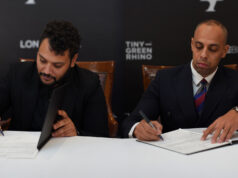A couple of days ago, Mo’men Zakaria made headlines all over press and social media sites because of an interview in MBC Masr’s El-La’eeb.
In it, the footballer didn’t shy from admitting that he wasn’t okay, becoming one of the first Egyptian celebrities who’d spoken out about their mental health in the media.
So, What Happened?
Like any athlete, Zakaria had had his ups and had been during his down period, with a season that might have not been the best.
The worst, however, came when he’d gotten a devastating mysterious injury now thought by many to be the hard-to-diagnose ALS (amyotrophic lateral sclerosis), which led to his being away from the football pitch for about 6 months so far.
However, there was a worse injury that had been brewing, hidden in plain sight. It was clear enough without Zakaria himself saying that this injury was “60% psychological” during his interview.
“I’m tired”, Zakaria admitted to the TV host. “I feel suffocated all the time.”
This quote wouldn’t need an official paper to back it. According to the many reports and comments of the host, Zakaria looks tired, from the way he’d sat to the way he acted.
That was all a stark change from the perpetually energetic and joyful player Zakaria was famous for being.


Zakaria: I Felt Isolated and Tired
According to the player himself, this change had sparked from the injury as well as his feelings of personal disappointment in not playing and the rumors and comments that had plagued him.




All these comments had made him feel like he’d not been doing his best for himself, his fans, or his club, currently the only thing making him willing to regain motivation.
Sadly, these negative receptions and rumors were all he had, in addition to an isolation from a sport he’d loved and began to find tiring.
Zakaria revealed he’d been so tired of the football sphere he had barely went to the club, taking to a mostly home-bound state. He’d been so affected, it even affected his injury and recovery. He’d even almost decided to quit football.
“Everything was too much and it broke me”, Zakaria said in the interview. “I didn’t want to be around the others a lot.”
When asked if he’d went to a doctor for the 6 months period he hadn’t been playing, Zakaria answered with a “why“, in a voice that clearly explained he hadn’t even thought it was necessary.
He was only beginning to seek treatment now, with a scheduled upcoming trip to Germany.
The TV host had later proceeded to ask an obvious question. Would Zakaria also seek psychological help?


Zakaria’s answer had been a no, citing that he’d surely passed this point even though the way he’d spoken about it showed that he could use more help. This is where we have to differ.
Seeking counselling and help for your mental health isn’t shameful or embarrassing. It’s a fact and we all have to accept it.
It’s okay to admit you’re not as okay as you thought you were, especially during this time where the stigma is lessening.
This Interview Is A Breakthrough in Terms of Mental Health Discussions
Even though he’d taken a stance probably provoked by fear against counselling, Zakaria remains one of the few celebs in Egypt who’d spoken about mental health at all.
Yes, he is among the first. Considering that football is a field where discussions around mental health aren’t even that common in more “progressive” leagues, this is a great first step.
Zakaria’s opening up about his problems, both psychological and physical, led to an overwhelming wave of support from fans and athletes alike.
Hashtags that support the footballer went viral in an effort to show him that people care and understand.




“Football can wait for now”, retired star Emad Meteb said about the topic. “Mo’men should focus on getting better and we should support him during this period.”


Conversations about mental health have been happening in places like America, where stars like Britney Spears and Beyoncé have also participated in the conversation.
They hadn’t, however, reached Egypt with the same energy yet.
In Egypt, we’ve only just began to talk about fat-shaming and bullying and both are worthy topics, but mental health wasn’t really something celebs, save for a few, had given their insights on yet.
We’re not saying this to diminish any of the public’s efforts in sharing and normalizing. When celebrities talk about an issue, however, they tend to make everyone else listen. And when everyone else listens, we can shine a spotlight.
Hopefully, the fact that Zakaria stepped up and gave this insight about his health will spark this much-needed conversation in Egypt.



















